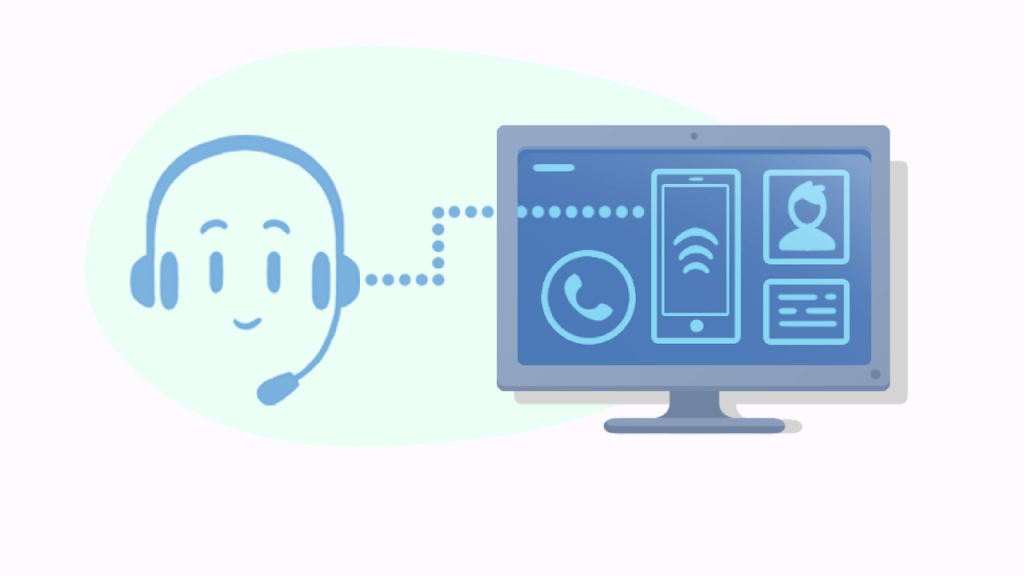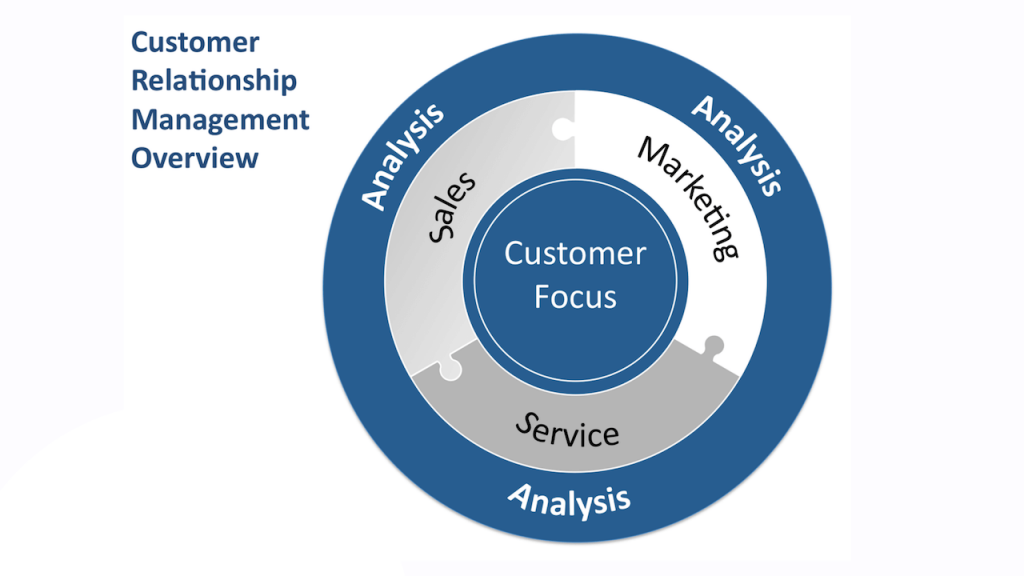Customer service and support is the part of the company’s customer relationship management (CRM Software) department that interacts with a customer for their immediate benefit, including components such as the contact management software, the help desk, and the call management system.
The logical extension of a great lead to the close-optimization initiative is strong customer support or management of controls. As a result, if customers are connecting with you, you have a good opportunity to interact with them after purchasing your product or service. What’s more, it is important that the support and service functions of a core CRM initiative be well integrated with the Sales Automation and Marketing Automation tools. This allows employees to better understand customer presence on the same page, customer history, current problem – speeding process, and customer satisfaction.
The Benefits of Using a CRM for Customer Service Support:
CRM has many benefits for the business sector. It plays an important role in managing and selling lead, which is valuable to marketing teams and sales staff. Both can use CRM data to keep track of customers and potential customers.
However, CRM support for customer service plays a key role because customer service combines marketing, sales, support and retention efforts. In particular, CRM highly value themselves to address the five key issues facing many customer service centers:
Escalated with the business efficiently.
Sometimes the adoption of a CRM is a necessity. Rapid growth can be interactive CRM – Sometimes anything other than spreadsheets or email folders appears to be inadequate. Many of these handheld systems offer the minimum viability for five or ten clients, but reduces productivity as business growth.
Cloud-based CRM supports business development without requiring continuous resumption of software or hardware. The features or features that a business might need are completely avoided. The upgrade (or downhill) ability to change the Cloud Based CRM reduces the risk that a business faces.
Additionally, a CRM Software used by hundreds of companies or thousands of businesses has the ability to respond to emerging business needs. If CRM are not accepted, firms like company change can continue to develop new functionality for internally managed systems
Share data in real time with all team members.
Sharing information in the customer service may be more than just being open to customer data. In fully integrated systems, for example, computer telephony integration and CRM-couples get instant access to full customer records when they interact with each other.
This real-time access can accelerate customer management issues and reduce the total amount spent on each customer. For example, a CRM may indicate a complete history of customer interaction, which includes records from previous calls that a client wants to resolve for an ongoing issue. You can contact the Promoter to quickly review the client’s history without requiring repetition. This entry can reduce customer frustration and allow reps to work with more customers at the same time.
Sales Management Software also play a bigger role for customer service representatives who are also involved in sales. A comprehensive CRM can include a list of marketing products that a customer can accept, which can give an insight into consumer interests and existing knowledge. Additionally, a CRM may increase the amount of information transmitted between remote sales staff and internal customer service representatives.
Seamless data transmission keeps track of the delegates’ data and at the same time accepts the general management perspective of a company. Both benefits have the potential to increase sales and increase revenue.
Automate data entry to obtain consistent and accurate information
The cost of sharing information depends largely on the quality of the information you receive. A complete set of notes from a previous call can not be valuable unless the content breaks down or the missing data. Without automated information, an engaging sales representative may neglect to point out a critical sales call. Alternatively, heavy duty demand for manual data entry will lower the staff. Also, it can spend a lot of time in good time to interact with face-to-face contact.
Integrated CRM automates many aspects of data entry to provide a clearer, more complete look of customer interaction. Enhanced clarity provides more reliance on information provided to users, and facilitates the storage of data.
The automation of the data provided is beyond the immediate improvement of the representative/customer interaction. A set of standardized information points is a key to getting mobile insights from CRM analysts for customer service managers.
Use the analysis to verify processes and increase responsibility.
An automated data entry system for a CRM provides raw materials for business analysis. Data provided by CRM for managers who work with them or even hundreds of employees will provide critical visibility that should be standardized.
This can also enhance acceptance by offering motivated justifications for behavioral changes in staff. The support team can help administrators more effectively with supported staff to adopt an internal strategy for customer interaction between new employers. Administrators can provide group members with the ability to test or test new methodologies, and the resulting information can determine success.
Thus, these analytical concepts can enhance accountability within a customer service center and within an organization. Data can be used to improve the performance of individual delegates, and managers may also require data managers to change or change staff or procedures.
At least additional accountability can help reflect the value of the online customer support center. The key points of information such as “Called Challenges” or “Sales Ended” are a clear indication of the utility. Increasing analytical information and accountability in an ideal scenario will also reduce costs.
Reduce costs to make customer service more efficient.
Decreasing costs is one of the greatest benefits of CRM. Improved data organization and sustainability create customer service interoperability and analyze these first benefits and further improve them.
Cost reduction is not necessarily a smaller or less important division. A more effective customer service can redistribute resources to improve central technology, training, or compensation – all of which can increase employee satisfaction and retention.
Of course, half of the cost reduction costs. CRM also has the potential to increase revenues through more sales or enhanced customer care. High-quality customer service experience, supported by CRM, can help prospective customers deliver more consistent, informed messaging.
Is it really possible to reduce costs or increase profits through CRM adoption? The result should be a long way to prove analysts’ work.
What can you expect from CRM for customer service?
For businesses where customer support services are important, CRM can push and pull information from many areas of a business to make communications within an organization and make customer interactions more effective.
CRM Software for small business can also provide more information, better quality information, and more information provided by relevant team members. Customer service managers can use these numbers to track and review CRM measurement to apply solutions based on the information provided to improve the performance of their service departments.
Finally, a CRM over a business can help overcome expense and increase profits; Benefits that affect everyone – representatives, managers, and administrators.
GET FREE ACCESS FOR CRM SOFTWARE NOW
What is CRM? | Benefits of CRM | How to make CRM Strategy for Your Business





Pingback: 16 customer care skills that every employee needs - Archiz Solutions